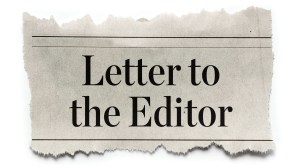Why ‘fixing’ the economy isn’t working
Published 10:53 am Friday, June 24, 2011
In case you have not noticed, this recession is unlike any other. That means the solutions will be unlike others.
So what happened?
A perfect storm working against the middle class is what happened. Since the 1980’s the wages of most Americans have barely kept pace with inflation.
Trending
But worker contributions to health care costs have eaten all those small increases and left most Americans struggling to pay their bills, much less save.
Then the housing market collapsed and took with it most of the savings Americans had through equity.
There was still more to follow…if your retirement included a 401K or Roth plan, or even equity investments, the collapse of the stock market took that money as well, making retirement far less certain.
Then came the fall of consumer confidence, as we had less and less spendable income, and more and more insecurity. That brought layoffs that have outlasted the technical recession creating a “workers recession.”
And now, almost four years after the first signs of economic distress, more Americans are unemployed or underemployed than ever in recent memory.
But fixing the problems that underlie this recession require more than the standard political solutions. Democrats believe in government stimulus in recession, but this is not a “temporary blip” and the stimulus did not end the recession for most working class Americans.
Trending
The financial infusions did not address the structural challenges of this recession, particularly that of foreclosures.
The Republican solution always tends to be lower taxes, but the Bush years saw the lowest taxes, now extended, in 60 years. That also has not worked to end the recession.
Republicans now off that private industry must simply have confidence in government policies to invest in America.
Specifically, the demand is for security for business against tax increases and regulatory oversight that slows growth.
But the facts indicate this solution will not resolve the employment crisis this time. American business has been doing quite well from a profit perspective, but never invests when consumers are not buying.
Still, it is more than that…according to Nobel Laureate Michael Spence; American companies with global interests have contributed almost nothing to American job creation since the 1980’s.
The investments our global companies have made have been in the high growth markets of Brazil, China and India. These three nations create 50 plus million new consumers every year.
So, tax incentives, abatements, corporate welfare, or subsidies, none of these incentives have resulted in these companies creating jobs in America.
Spending more to accomplish this is a poorer investment than the stimulus.
The only firms creating jobs in America have been companies whose total business is American…hotels, retail and health care are some examples.
But even considering those companies creating new jobs for Americans, all too often the skills match to the job demands are not working to help Americans find work. Our people are less mobile than in decades, with fewer able to re-locate for work than ever before.
A Las Vegas family with a home that is upside down by $200,000 cannot move to Texas for any job. And leaving a career as an auto worker to begin as a retail assistant manager is not an easy or likely transition.
There are no easy solutions, but we must continue to invest in education and training, and we must support those businesses that do create American jobs, and we must end all forms of corporate and tax welfare to the global corporations that no longer create American jobs.
Their demands should be ignored and their taxes paid.
We need an end to the stale political rhetoric, sponsored by lobbying interests, in favor of solutions that reward businesses that actually do create jobs, and protect workers that actually do need education, training, or unemployment compensation during these difficult times.
Jim Crawford is retired educator and political enthusiast living here in the Tri-State.





